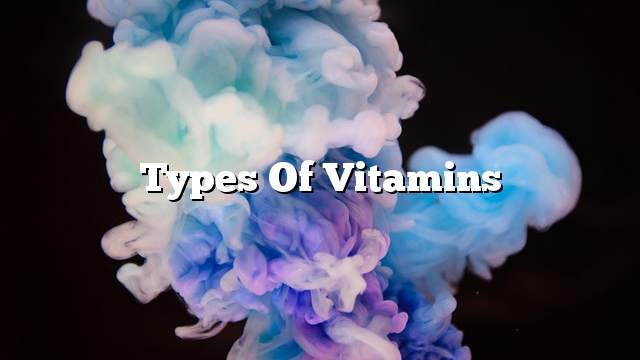Vitamins
The body needs many nutrients that complement each other to build the body, renew its cells, carry out its vital functions, and resist disease. These elements are vitamins, which are chemical compounds needed by the body in very small quantities compared to the rest of the basic nutrients such as proteins, carbohydrates and others, and play important roles Such as metal metabolism, cell growth, hormone production, and antioxidants.
Types of vitamins
The vitamins are classified according to their function and effect rather than depending on their composition, and they are named according to the alphabet in English, in order of their date of discovery, except vitamin K is derived from the word coagulation; to indicate its function, .
Vitamins dissolved in water
These vitamins are consumed by the body on a daily basis and more are eliminated through body secretions such as urine, so take the required amounts daily to avoid any health problems, but does not apply to vitamin B12, which can be stored by the body.
- Vitamin C is called ascorbic acid. It has a large role in the body’s immunity, forming various body cells, in addition to absorption of iron salts, and its deficiency causes many problems such as ascorbic disease, and is present in abundance in fruits and vegetables, especially citrus and guava.
- Vitamin B is a group of vitamins that are often combined, and can be obtained from the liver of livestock and poultry, other sources that contain the whole or part of it.
Vitamins are insoluble in water
Also called fat-soluble vitamins, the body can be kept in fatty tissue, the liver for up to six months, namely:
- Vitamin A: called ritanol, has an important role in the vision process, and lack of lead to night blindness, and can be obtained from all kinds of meat, liver and cattle, poultry, eggs and others.
- Vitamin E: Vitamin E or E acts as a powerful antioxidant that protects the body’s cells and keeps them safe from natural oils, especially olive oil and sunflower oil.
- Vitamin D: It is called sunlight. It contributes significantly to the absorption of calcium, its calcification in the bones, in addition to some other functions, and can be obtained in the quantity required by full exposure to the sun, or through the intake of milk and milk products and others.
- Vitamin K: consists of several compounds, which produce blood clotting factors, and can be obtained from green vegetables, meat, fish, and eggs.
